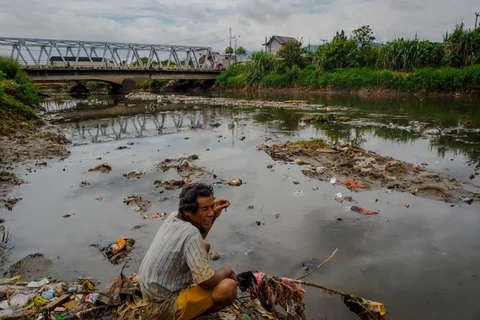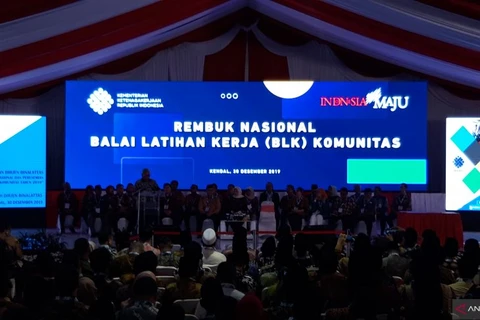Jakarta (VNA) – Halim Perdanakusuma Airport in Jakarta of Indonesia was closed on January 1, as its runway got flooded after unremitting rains lashed the capital city on the last two days.
A representative of the airport Nandang Sukarna said the runway would be flooded if torrential downpours reoccur, even though airport staff have tried to pump the water out.
All flight activities were diverted to the Soekarno-Hatta International Airport in Cengkareng, west of Jakarta. The passengers received food and beverages as compensation from the airlines, he added.
The airport notified the delay of several flights following the runway closure, including the first flight of the day.
Heavy monsoon rain in the Indonesian capital and nearby cities since December 31 triggered likely the worst flooding in almost seven years.
Manggarai floodgate in Central Jakarta has forced its status into Alert II since the water level increased to 854 cm high on January 1.
Based on the regional disaster mitigation agency (BPBD), the water level at Jembatan Merah floodgate, Ciliwung, was increased to Alert I.
The rain also increased water level at other floodgates, including Pesanggarahan with 181 cm, Kali Duri with 246 cm high and Hek floodgate with 180 cm./.
A representative of the airport Nandang Sukarna said the runway would be flooded if torrential downpours reoccur, even though airport staff have tried to pump the water out.
All flight activities were diverted to the Soekarno-Hatta International Airport in Cengkareng, west of Jakarta. The passengers received food and beverages as compensation from the airlines, he added.
The airport notified the delay of several flights following the runway closure, including the first flight of the day.
Heavy monsoon rain in the Indonesian capital and nearby cities since December 31 triggered likely the worst flooding in almost seven years.
Manggarai floodgate in Central Jakarta has forced its status into Alert II since the water level increased to 854 cm high on January 1.
Based on the regional disaster mitigation agency (BPBD), the water level at Jembatan Merah floodgate, Ciliwung, was increased to Alert I.
The rain also increased water level at other floodgates, including Pesanggarahan with 181 cm, Kali Duri with 246 cm high and Hek floodgate with 180 cm./.
VNA
























